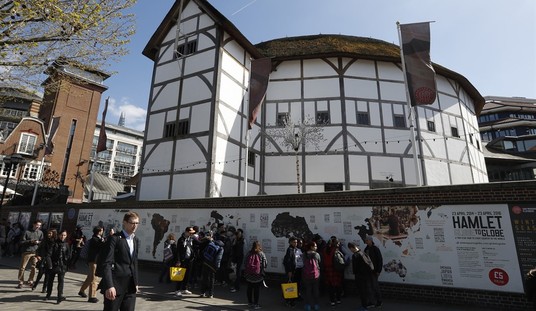On Monday, Sen. Bernie Sanders (S-USSR) said he still didn’t regret praising Cuban dictator Fidel Castro, even though his remarks may have galvanized Democrats to unite behind Joe Biden in an effort to prevent a Sanders nomination. Bernie has continued to insist that the Soviet-aligned dictator notorious for using firing squads to silence dissent nevertheless brought some good to Cuba, specifically through his literacy program. Yet the literacy program — to the extent it even existed — was nothing to brag about and may have just been Castro propaganda.
“We’re very opposed to the authoritarian nature of Cuba, but you know, it’s unfair to simply say everything is bad. You know, when Fidel Castro came into office, you know what he did? He had a massive literacy program. Is that a bad thing, even though Fidel Castro did it?” Sanders said in an interview with 60 Minutes.
Bernie doubled down on this statement in a debate. Then he tripled down on the statement on Monday during a Fox News town hall. Conservatives at CPAC condemned socialism and Republicans filed a resolution condemning Sanders’ remarks, but Democrats voted it down.
These remarks appeared to galvanize old guard Democrats against Bernie. MSNBC host Chris Matthews warned of socialist executions — and the “Bernie Bros” wanted him sacked. The fallout from Matthews’ criticism helped spark a round of #MeToo sexual assault allegations that got him ousted.
Yet as Democrats appeared ready to nominate a self-declared “democratic” socialist, powerful people in the party seemed to kick into high gear. In a matter of days, former Mayor Pete Buttigieg and former Rep. Beto O’Rourke (D-Take Your Guns) joined with Sens. Amy Klobuchar (D-Minn.), Kamala Harris (D-Calif.), and Cory Booker (D-N.J.) to endorse former Vice President Joe Biden. The party rallied around Biden and appears to have defeated Sanders — and these remarks praising Castro may have done in Bernie’s candidacy.
“It really makes a difference when those you murder at the firing squad can read & write,” Sen. Ted Cruz (R-Texas) quipped.
Yet regardless of the moral and political weaknesses of Bernie’s praise for Castro, one question remains: Is it true? Did Castro turn around Cuba’s literacy rate with his programs?
As Frederick Hess and Brandon Bell wrote for National Review, it is difficult to know for certain whether or not the programs existed and just what impact they had on Cuba’s literacy rates. After all, the Castro regime was notorious for propaganda and for executing dissidents. However, it is possible to trace the literacy talking point and to compare Cuba’s literacy gains during the period with the gains of similar countries.
“In 1977, at the height of the Castro regime, a congressional delegation visited Cuba. Impressed by what Cuban officials told them, the delegation reported that the literacy rate under Castro had risen from 25 percent to 99 percent. This claim then took on a life of its own, irrespective of reality,” Hess and Bell reported.
Yet in 1950, nine years before Castro’s revolution, Cuba already had one of the highest literacy rates in Latin America and the Caribbean: 78 percent, according to Oxford’s Latin American economic history database.
Even if Castro’s regime somehow increased the literacy rate from 78 percent to 99 percent, that would not be particularly impressive for the region during the time. As Hess and Bell noted, economists at Oxford University’s Our World In Data project calculated that during the same 50-year period (1960-2010), other Latin American countries enjoyed far greater gains. Bolivia’s literacy rate jumped from 44 percent to 92 percent (a 48 percent increase). Brazil’s literacy rate grew from 60 percent to 91 percent (31 points). Colombia’s rate jumped from 70 percent to 94 percent (24 points). Paraguay’s literacy rate grew from 73 percent to 94 percent (21 points).
Furthermore, there are many reasons to doubt Cuba’s 99 percent literacy rate. The Castro regime self-reported this rate, and it may have overlooked inconvenient census results. Simple claims of “literacy” can be misleading, as adults who are “formally literate” may still have “relatively weak literacy and numeracy skills,” according to a 2008 UNESCO report. Finally, Castro’s regime did not just seek to promote literacy but to promote revolutionary dogma. Castro closed all private schools and ordered the public schools to begin the school day with students chanting, “Pioneers of Communism, we will be like Che.”
Even if rates did go up, is that kind of “literacy” something worth celebrating? Bernie Sanders seems insistent that it is, and that fact should worry Americans a great deal. After all, a Sanders victory would arguably represent the Soviets belatedly winning the Cold War.
Tyler O’Neil is the author of Making Hate Pay: The Corruption of the Southern Poverty Law Center. Follow him on Twitter at @Tyler2ONeil.









